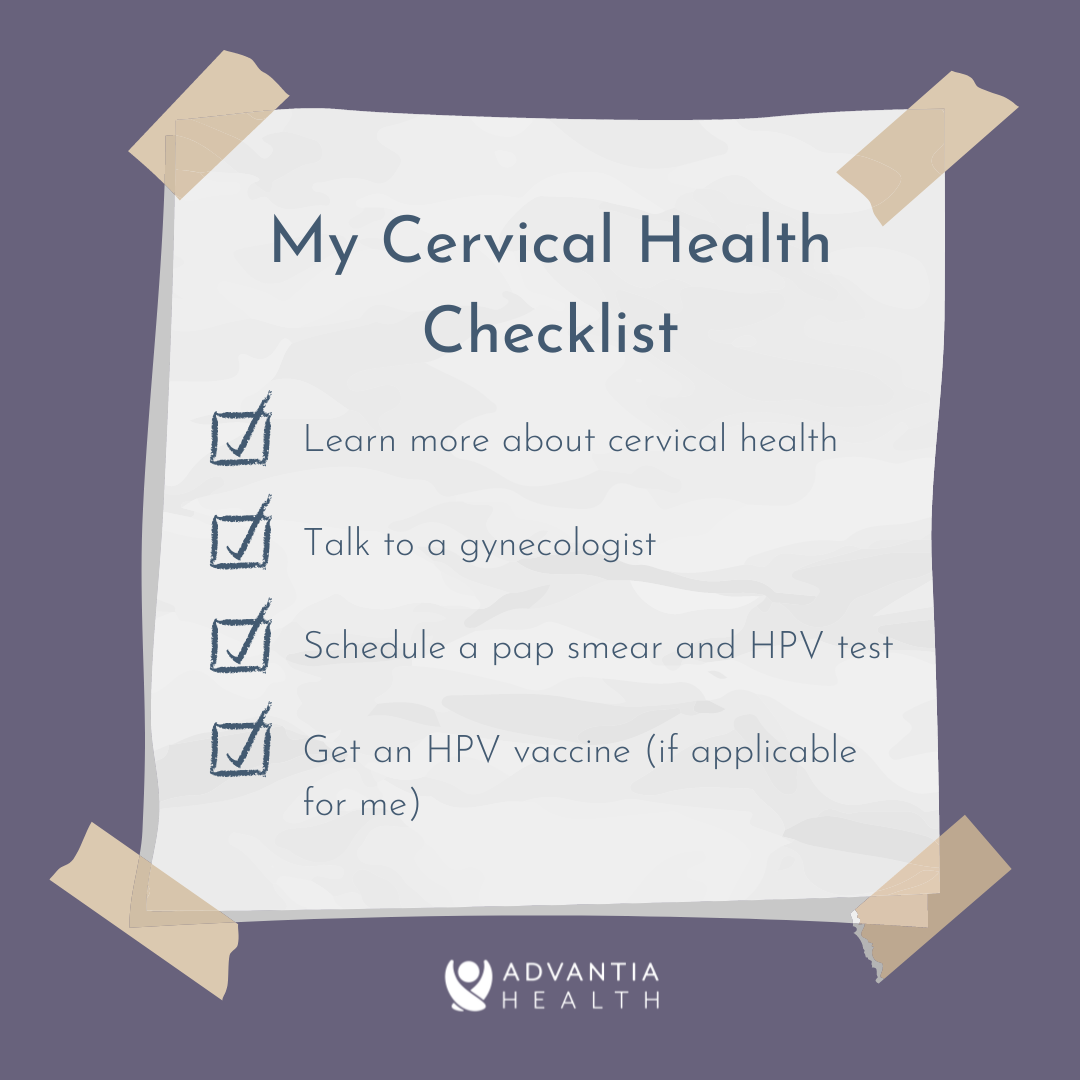
Published on: 25 January, 2023
Read Time: 6 min
January is Cervical Health Awareness Month, an ideal time to consider scheduling a cervical cancer screening appointment. If you haven’t visited a gynecologist in years and are hesitant about getting a screening, know that you are not alone. This article will explain the importance of cervical health awareness and explore reasons why many women delay Pap tests or HPV vaccines. We will also discuss the benefits of maintaining cervical health and provide reliable resources to support your well-being.
Understanding the Cervix
The cervix is a narrow, tube-shaped organ, approximately one inch long, located at the bottom of the uterus and connecting it to the vagina.
What Is Cervical Health Awareness?
Cervical health awareness involves understanding the importance of cervical health and knowing whether your cervix is free of cancerous or precancerous cells. This requires screening by a doctor or qualified healthcare professional.
What Is Cervical Cancer Screening?
Cervical cancer screening involves evaluating cervical health using a Pap test, an HPV test, or both.
What Is a Pap Smear or Pap Test?
A Pap smear, named after its inventor Dr. Georgios Papanicolaou, is a procedure that collects a small sample of cells from the cervix. This quick procedure allows a laboratory to examine the sample for cancerous and precancerous cells.
What to Expect During a Pap Smear
During a Pap smear, your gynecologist or healthcare provider will:
- Gently insert a speculum, a tool shaped like a duck’s bill, to widen the vagina and view the cervix clearly.
- Use a small brush to collect cervical cells for testing.
- Send the collected sample to a lab for analysis.
By understanding these procedures and the importance of regular cervical health screenings, you can take proactive steps to maintain your health and well-being.
What Is an HPV Test?
An HPV test uses sample cells from a pap smear to look for certain high-risk types of HPV. Human papillomavirus (HPV) is the most common sexually transmitted infection (STI).
Facts about an HPV test for your cervical health:
- More than 100 HPVs affect the human body, but about 40 strains can affect genital areas.
- An HPV test looks for high-risk virus strains that cause cervical cell changes and cancer.
- Early detection and treatment can stop the cells from becoming cancerous.
What Is an HPV Vaccine?
An HPV vaccine is a vaccine designed to protect you from the most common, high-risk HPVs that cause genital warts and cancer.
HPV vaccine facts:
- The vaccine does not contain live viruses, so you cannot contract HPV from it.
- Ages 9 through 14 receive two vaccine doses, six to twelve months apart.
- Ages 15 through 26 receive three vaccine doses, one to three months apart.
- You can get HPV vaccine safety information on the Centers for Disease Control and Prevention’s (CDC) website.
Is Cervical Cancer Treatable?
Cervical cancer is treatable, especially when a doctor catches it early. According to the National Cancer Institute, the five-year survival rate for stage I cervical cancer is 92 percent. The five-year survival rate for stage IV cancer is 17 percent. Your treatment options depend on the cancer stage and may include one or more of the following:
- Chemotherapy
- Radiation therapy
- Surgery
Screening is vital to detect early stage cancer.
5 Benefits of Protecting Your Cervical Well-Being
Cervical health affects more than your cervix. Although cervical cancer does not cause most gynecological concerns, consider five benefits of protecting yourself against it.
- Minimize menstrual concerns. Promote a more stable menstrual cycle without abnormal discharge or bleeding caused by cancerous or precancerous cervical cells.
- Promote fertility. Healthy cervical mucus, or fluid, nourishes and protects sperm cells on their swim to fertilize eggs.
- Reduce risks of urinary and bowel changes. Cancerous cells on the cervix can impact the bladder or bowel.
- Promote a healthier pregnancy. A healthy cervix supports a healthy uterus and can minimize the risks of premature delivery.
- Support your sexual enjoyment. Cervical wellness helps retain vaginal moisture during intercourse, preserving your pleasure.
But you may still hesitate to get tested.
What Are Your Top Concerns About Cervical Cancer Screening?
According to a January 2022 article published by the Journal of the American Medical Association, the rate of overdue cervical cancer screenings increased from 14.4% in 2005 to 23.0% in 2019. If you are hesitant about scheduling a cervical cancer screening, you deserve to get answers first.
Which of these concerns do you share?
- I’m not sexually active.
- I’ve never been to a gynecologist or haven’t been in years.
- I’m too old—or too young.
- I am worried that a pap smear will be painful.
- I don’t have any cervical cancer signs or symptoms.
- Why would I need an HPV vaccine and a pap test?
- I can’t relax for a pap smear.
- I don’t have medical insurance.
- Can’t my immune system get rid of the HPV virus?
- I am afraid.
Reliable Resources About Cervical Health
We encourage you to increase your cervical health awareness by talking to a gynecologist and using the following resources:
- American College of Obstetricians and Gynecologists: Get straightforward answers from Cervical Cancer Screening Frequently Asked Questions.
- CDC’s National Breast and Cervical Cancer Early Detection Program: Find out if you are eligible for free or low-cost screening.
- CDC Cervical Cancer Screening and Survivor Stories: Read inspiring stories about cervical health from women of diverse backgrounds.
“Come prepared to talk to me. Your care should be a dialogue. The more I understand about where you’re coming from, your background, your fears, and your concerns, the better I can help you. My goal as a physician is to ensure that every time I’m in a room with a patient, I give them the very best of myself.” – Dr. Jo’Ann Jackson, MD, Reiter, Hill & Johnson of Advantia and Liv by Advantia Health.
Empower yourself to protect your cervical well-being.
Summary
Cervical cancer screening includes a pap smear, HPV test, or both. Screening is the only way to detect cancerous or precancerous HPV cells. An HPV vaccine can protect you from high-risk HPVs that threaten cervical health. If you’re anxious about scheduling an appointment, take advantage of the resources in this article to help you understand why your cervical health matters and how to get the care you need.

You Can Trust Advantia Health
At Advantia Health, we will listen to your questions, address your concerns, and help you feel comfortable and confident about your healthcare choices. We have offices in Illinois, Maryland, Missouri, Virginia, and Washington, DC, and we’re growing! You will get compassionate, professional care from our team.
Find an Advantia Health doctor near you and schedule a better experience today.





